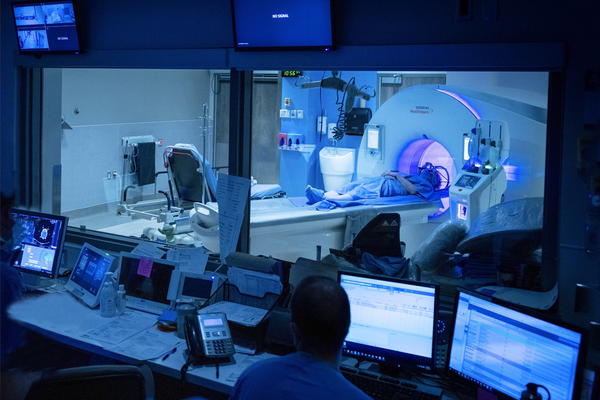Mobile Menu
- Education
- Research
-
Students
- High School Outreach
- Undergraduate & Beyond: Community of Support
- Current Students
- Faculty & Staff
- Alumni
- News & Events
- Giving
- About

As an internal medicine resident, Amol Verma realized the patients he was seeing — aging patients with multiple chronic diseases — weren’t reflected in medical literature. He and his former MD classmate, Professor Fahad Razak want to change that. They launched the General Medicine Inpatient Initiative — or GEMINI — to integrate internal medicine data from seven U of T-affiliated hospital sites, enabling ongoing research on current patients, their treatments and health outcomes. Verma spoke with Faculty of Medicine writer Carolyn Morris about the project.
How did you notice the difference between patients in the hospital and those in medical literature?
As an internal medicine resident, I would often see aging patients with multiple chronic conditions. They might have dementia and at the same time be recovering from stroke. Or they’d have a heart condition, a lung condition, and be suffering from kidney failure. When I’d look to the medical literature to inform clinical care, though, I realized that most of it didn’t apply to my patients. The focus would be narrow — typically involving younger populations with a single condition. The science on multiple conditions just wasn’t there, so we were looking at our patients through a bit of a black box.
As I progressed through medical school and residency, it also really felt like internal medicine wards were getting busier and facing more complex cases. But we didn’t really have the data collected or interpreted to confirm that.
How did you go from having these insights to launching GEMINI?
I got together with my friend and colleague Fahad Razak, an internist, epidemiologist and professor in the Department of Medicine, based at St. Michael's Hospital. We thought, if there’s a lack of information about patients like ours, why don’t we start studying the patients we take care of? Why don’t we try to understand and learn from them, and improve how we’re able to treat them? Fahad and I had collaborated in the past, including launching The Rounds Table, a podcast about new research in medicine hosted by Healthy Debate.
We started brainstorming ideas, and looked into how we could bring data together to research current patients and their care — and also make the data available to others for any number of research questions. We ended up launching the General Medicine Inpatient Initiative, or GEMINI. In theory, you’d think this information would be easy to access, but we’ve had to work with 20 or more information systems across seven major hospital sites to pull this data together and analyze it. While the Institute for Clinical Evaluative Sciences has done enormous and sophisticated work using administrative data, the data in this project delves into treatment decisions, resources used in hospital and patient outcomes — it’s clinical versus administrative data. We’re the first project in general medicine to pull this data together at this scale in Canada.
What have you found out so far?
First, we demonstrated there was a 30 per cent increase in the number of patients in internal medicine over five years, from 2010 to 2015. Our patients have six coexisting conditions on average, which highlights the importance of developing a new evidence base to understand the care of these patients. We’ve started to identify variations in care between different doctors and hospitals that suggest there are important opportunities to improve patient outcomes and reduce unnecessary care.
We’ve also examined cases of delirium in admitted patients and found them to be quite high – at around 18 per cent. If you only use administrative health data, you miss the vast majority of these cases. Delirium is linked to increased mortality and cost of care, so we’re continuing to study this to determine ways to improve care for these patients.
Our biggest contribution with GEMINI, though, is creating an infrastructure to share clinical data, study our patient population and continuously improve care.
You’re doing this project as a Phillipson Scholar in the Department of Medicine’s Clinician-Scientist Training Program – how has this program supported your work?
Immensely. I’m able to do this project because of the support I’ve gotten through the clinician-scientist training program. It allows me to dedicate 90 per cent of my time to research. And this is a big deal considering how hard it is right now for scientists to secure funding. It also connects me with supervisors in the field — I’m learning so much from Professors Muhammad Mamdani, Moira Kapral, Andreas Laupacis and other colleagues.
It’s important for clinicians to be involved in research. As an internal medicine resident, I can see opportunities and pressure points up close, from the patients I’m interacting with. The daily questions that come out of clinical care end up informing research questions and then, we’re able to bring our findings back into the clinic. We’re really well positioned to use research to improve patient care.

